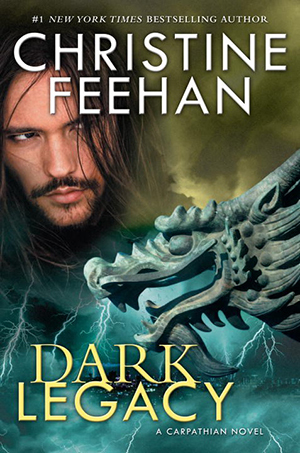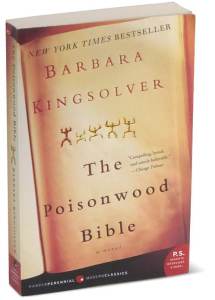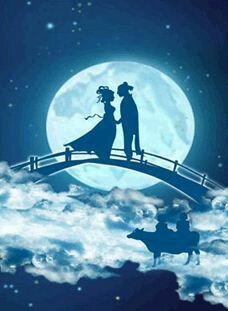
Book Bingo – First book by a favourite author = achieved!
Have I mentioned that Jo Walton is one of the most awesome authors ever? No?? Well let me do so now! Jo Walton is an amazing author. She is one of my absolute favourite authors of all time. There are writers who deliver the same kind of awesome every time (you know what you’re going to get, for example, from a Terry Pratchett book or an Alastair Reynolds, a Robin Hobb or a Mercedes Lackey), and there are those that like to change things up and shift between genres (often with an author name tweak or change). And then there’s Jo Walton. Her books are like nothing else I’ve read. Which could just mean that I’m not very well read, but I choose to believe it’s because I found the good stuff right off the bat. Every time I’ve picked up a book by Walton I’ve not know what to expect, I’ve only known that she’ll surprise and delight me, and that whatever she’s turned her attention to will be the only thing I’m interested in while I’m reading what she has to say about it. The two constants in the world of Walton are her smarts (she’s clearly way up there in the intelligence tree) and her beautiful, clear writing. I love her work. She’s the one author (living) that I’d like to meet, because while my general attitude to meeting writers is that there’s not much point since they’ve already written down everything I want to know, I imagine Jo Walton would just be so gosh darn interesting to talk to.
So, this isn’t going to be the most impartial thing I’ve ever written.
The King’s Peace and The King’s Name were published in 2000 and 2001 respectively. Walton has written thirteen novels so far, with another two due out in 2018, (plus a non-fiction book, An Informal History of the Hugos, which I am extremely excited to read). She has won a whole bunch of awards for her work, including a Nebula and a Hugo for Among Others (my favourite), the World Fantasy Award, the Locus and the Tiptree; but I still feel she is not as widely known as she should be. I mean, for a writer who was only first published in 2000 that’s a heap of top-quality, grade-A work right there.
I don’t feel that it’s obvious The King’s Peace and The King’s Name are first works. Together (and these two books do have to read together), they are a beautifully self-assured retelling of the Arthurian legend set in an alternate world. The existence of multiple worlds is touched on by a number of different characters who talk about both the patterns and the discrepancies in the lives that are lived across these many realities, and it is an intriguing thread that never dominates the story. What’s impressive is that alongside this the story also feels historically sound. There’s a brilliant introduction to The King’s Name that speaks about the two books as a recently unearthed historical text whose authenticity is still hotly debated. It’s a fantastic touch that kind of briefly opens up a window to the future of Sulien ap Gwien’s world. The two books are nicely balanced too, with book one about the fight against external and invading forces, and book two about internal, civil war between friends, family and comrades. To all intents and purposes Sulien’s world is 6th Century Britain with all the names changed (what I would have given for a map at the front of the book though, it’s hard work trying to puzzle out where everywhere is) and the infrastructure, landscape, and methods of fighting all suggest Walton did a lot of research to get the feel right.
What is more awesome is that the magic in this world is equally convincing. The gods are real, physical beings on the island of Tir Tinagiri, connected to the land and to the people through their lords and kings, and through Urdo (Arthur) as High King. People, the gods and the land are inextricably linked in this universe and most people use some small magic in an intuitive everyday way to cleanse water, light fires, and heal wounds. A king is a king at the permission of the gods and he or she stands between them and the people, as a sort of conduit and protector. It’s all so atmospheric and credible that I actually got goose bumps when the Lady of the Waters made her appearance; and again when one of the old guardians of the land, Turth, made a surprise cameo; and again when Urdo literally became a part of the land on his deathbed. Some things just feel like they should be true, and Walton’s beautiful magic is one of them.
Organised religion is another part of the story, however, as paganism and Christianity are both a part of the Arthurian legend. These two books chart the movement of a country from many small kingdoms to one united under a single king, and also the movement of a people away from the many small gods or home and hearth, towards the more organised religion of the White God (a thinly-veiled Jesus), who is god over all the gods. The whole story is a dialogue between these two ways of looking at the world, as the characters discuss and fight about their beliefs. Walton presents both sides as true. Sulien champions the old gods, but she still sees the White God at one point in the story, and accepts that he is real while also refusing his right to eclipse her own gods. And Urdo refuses to acknowledge either belief system as the one and only. He insists that freedom of faith remain a fundamental part of the kingdom he is creating, and continues to recognise all gods whenever he has to swear by them. The whole story can be seen as the story of a country merging from many in to one: faiths clash and merge, cultures do too, and eventually these many different factions are united.
But let’s talk about Sulien. Walton imagines this alternate Britain as one where women and men are equals. Sulien ap Gwien is seventeen years old at the beginning of the book, and she becomes one of King Urdo’s leading armigers, (which is a lovely word for a knight, and literally means someone who has the right to bear arms). She is called a lot of things (complimentary and not) through the story, but one thing everyone agrees on is that she is kickass. She is a refreshing leading lady in the world of fantasy where most female characters are languishing love interests, or a prize to be won by the hardworking and noble male lead; witches/sorceresses/mages, or some sort of sexy assassin-type, always popular if you’re hoping your book will become a video game or movie. Sulien is a woman completely uninterested in romantic and/or sexual relations (I cheered long and loud over this!). She follows Urdo, considers him her friend and nothing more, (seriously, not even a hint of attraction – it’s fantastic!), and only wants to be the best at what she does, which is fight as part of one of the cavalry units known as ala that Urdo has created. Importantly, her looks never come into the story either. She’s no flame-haired, or raven-haired, or golden-haired warrior woman, she is just a tall, strong woman who can fight, in a world where women can and do without anyone batting an eyelid. Women in this world are just as likely to be lords or war leaders as they are to be house-keepers and wives; and being a wife and mother does not preclude them from fighting. No one’s competence is ever questioned or challenged in the book because of their gender.
Sulien’s not the only one. There are some truly great characters – my favourites being Sulien’s cousin Rigga, and friends Angas and Osvran. And Conal Fishface. Hmm, and Ohtar the Bear. And Inis, self-styled Grandfather of Heroes and quite, quite mad. Oh, and Garah and dear Apple … OK. Yep. That’s about it – tons of whom die horribly. Within the larger story of Urdo and his kingdom there is plenty of room for other tales, and there’s a good variety: there’s a tragic love story (not the Guinevere and Lancelot thing – thankfully!), and blood feuds and vengeance; tales of incredible battles and daring strategies (some that pay off, some that don’t); gods and magic, and the story of families and friends brought together and torn apart by the changes going on around them. It’s awesome stuff and I really can’t recommend it enough. Jo Walton everybody. Tell your friends.
Advertisements Share this:He told me then what Morwen had told me long before, that I was not in any of those futures, those other worlds he could see; there is only one of me. I find that comforting sometimes. It would be too painful to think that there are worlds somewhere where I got everything right.
“The King’s Name”





